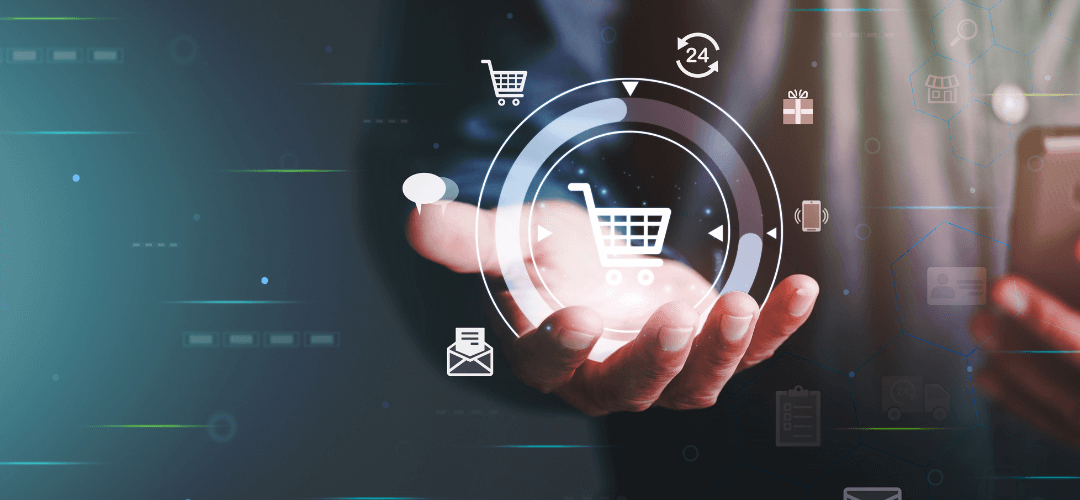How to scale your e-commerce store is a pivotal step in your business’s growth journey. Therefore, to help you navigate this process effectively, we’ve broken down the key focus areas in the following guide.
Evaluate E-Commerce Platforms
Discovering the perfect e-commerce platform is critical in understanding how to scale your e-commerce store effectively.
- Research E-Commerce Platforms:
- Begin by researching various e-commerce platforms available in the market, such as Shopify, WooCommerce, Magento, and BigCommerce. In addition, evaluate them based on criteria like features, scalability, and pricing.
- Choose a Suitable Platform:
- Select a platform that aligns with your product range, target audience, and growth plans. Furthermore, consider whether you plan to sell physical or digital products, your expected sales volume, and your customization needs.
Optimize Website for Scalability
Ensuring your website can handle increased traffic and activity is crucial:
- Design for Traffic Surge:
- Design your website layout to accommodate surges in traffic, especially during peak seasons or promotional events. Also, prioritize user-friendly navigation, fast-loading pages, and mobile responsiveness.
- Implement Performance Boosters:
- Improve website performance by implementing caching mechanisms and content delivery networks (CDNs). Moreover, these technologies enhance load times and ensure a smooth shopping experience for customers, even during traffic spikes.
Inventory Management
Efficient inventory management prevents overstocking or stockouts and ensures a seamless shopping experience:
- Choose an Inventory System:
- Select an inventory management system that integrates seamlessly with your e-commerce platform. Also, this system should enable real-time product availability tracking, making it easier to manage and restock inventory as needed. Therefore, here are a few inventory management systems to consider:
- QuickBooks Commerce: Renowned for its strong inventory management features and seamless integration with diverse e-commerce platforms, it excels in maintaining precise stock levels and optimizing order processing.
- Fishbowl: Fishbowl is a feature-rich inventory management solution that suits small to mid-sized businesses. In addition, its seamless integration with e-commerce platforms and support for barcode scanning make inventory control efficient.
- Zoho Inventory: Part of the Zoho suite, Zoho Inventory simplifies inventory tracking and order management. Furthermore, its compatibility with popular e-commerce platforms like Magento and Shopify ensures a seamless connection.
- inFlow Inventory: Tailored for small businesses, inFlow inventory offers tools for inventory tracking, purchase order generation, and sales order management. It’s a cost-effective choice, especially for growing e-commerce stores.
- Select an inventory management system that integrates seamlessly with your e-commerce platform. Also, this system should enable real-time product availability tracking, making it easier to manage and restock inventory as needed. Therefore, here are a few inventory management systems to consider:
- Real-Time Tracking:
- Implement real-time inventory tracking to maintain accurate stock levels. Moreover, that minimizes the risk of customers encountering out-of-stock products and ensures that popular items are consistently available.
Logistics and Fulfillment
Streamlining logistics and fulfillment processes is essential for delivering a satisfying customer experience:
- Partnerships with Providers:
- Build strong partnerships with reliable shipping and fulfillment providers. Also, look for providers that offer competitive rates, dependable service, and the ability to scale with your growing order volume. As a result, possible solutions include:
- Third-Party Logistics (3PL) Providers:
- Consider partnering with a 3PL provider like ShipBob, ShipMonk, or Red Stag Fulfillment. Additionally, these companies specialize in warehousing, picking, packing, and shipping, allowing you to outsource these critical aspects of your business. Hence, look for a 3PL that can scale with your business’s growth and offers competitive pricing.
- Multi-Carrier Shipping Software:
- Implement multi-carrier shipping software such as Shippo or ShipStation. These platforms enable you to compare shipping rates from multiple carriers and streamline the shipping process. In addition, they often offer features like automated label generation and order tracking, which can save time and improve efficiency.
- Dropshipping:
- Explore dropshipping as a fulfillment model. For example, with dropshipping, you partner with suppliers who directly ship products to your customers. Therefore, that eliminates the need for warehousing and shipping on your end. As a result, platforms like Oberlo (for Shopify) and SaleHoo can help you find reliable dropshipping suppliers.
- In-House Fulfillment with Automation:
- If you prefer to maintain control over fulfillment, invest in automation technology. For instance, to increase efficiency, implement conveyor systems, barcode scanners, and automated packing stations. Additionally, use inventory management software that integrates with your e-commerce platform to optimize order processing.
- Third-Party Logistics (3PL) Providers:
- Build strong partnerships with reliable shipping and fulfillment providers. Also, look for providers that offer competitive rates, dependable service, and the ability to scale with your growing order volume. As a result, possible solutions include:
- Automate Order Processing:
- Automate order processing to streamline fulfillment. That includes automating shipping notifications and order tracking updates, allowing customers to stay informed about their orders without manual intervention.
Customer Service Scaling
Maintaining excellent customer service is paramount as your e-commerce store grows:
- Implement Support Tools:
- Implement support tools such as live chat, chatbots, or AI-driven customer support systems to efficiently handle more customer inquiries. Furthermore, these tools can provide real-time assistance and resolve common queries. Examples of such tools are as follows:
- Live Chat Software:
- Tools like LiveChat, Intercom, or Zendesk Chat enable real-time customer communication. Live chat allows your support team to instantly assist customers, answer questions, and guide them through purchasing.
- Chatbots:
- Integrate chatbots using platforms like Drift or HubSpot’s Chatbot Builder. Chatbots can provide automated responses to frequently asked questions, gather customer information and direct inquiries to the appropriate support channels.
- AI-Driven Customer Support Systems:
- Explore AI-powered customer support solutions like Freshdesk or IBM Watson. Additionally, these systems use artificial intelligence to analyze customer inquiries, suggest relevant answers, and even handle routine tasks, freeing up your support team for more complex issues.
- Helpdesk Software:
- Implement helpdesk software such as Freshdesk, ZenDesk, or Help Scout. These platforms centralize customer inquiries, track tickets, and allow support agents to collaborate effectively to resolve customer issues promptly.
- Live Chat Software:
- Implement support tools such as live chat, chatbots, or AI-driven customer support systems to efficiently handle more customer inquiries. Furthermore, these tools can provide real-time assistance and resolve common queries. Examples of such tools are as follows:
- Self-Service Resources:
- Offer self-service resources like comprehensive FAQs, product guides, and sizing charts. These resources empower customers to find answers to their questions independently, reducing the load on your support team.
Personalization and Customer Retention
Enhancing customer relationships through personalization and retention strategies is vital:
- Implement Personalization:
- Utilize personalization tools to tailor product recommendations and promotional offers based on customer behavior and preferences. As a result, that encourages customers to make repeat purchases and enhances the shopping experience.
- Customer Loyalty Program:
- Establish a customer loyalty program that rewards repeat buyers with exclusive discounts, early access to sales, or loyalty points they can redeem for future purchases. Also, such programs incentivize customer retention.
In conclusion, how to scale your e-commerce store is a multifaceted process that involves evaluating your e-commerce platform, optimizing your website, efficient inventory management, streamlined logistics, exceptional customer service, and personalized customer retention strategies. Thus, these aspects collectively contribute to a successful expansion, ensuring your e-commerce store continues to provide a top-notch shopping experience as it grows.

